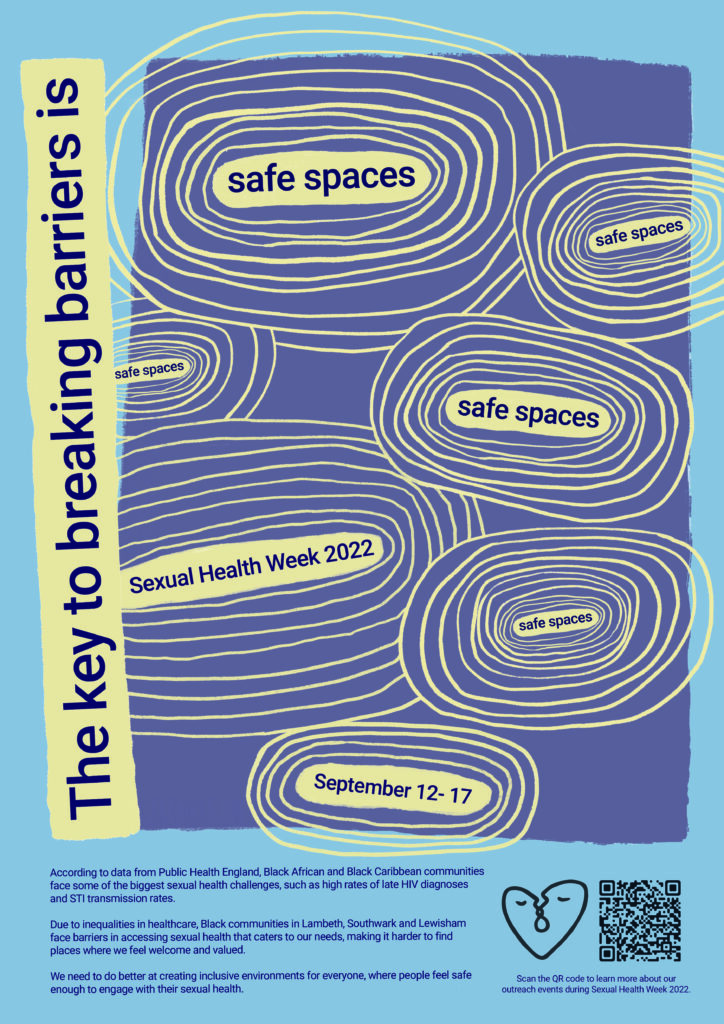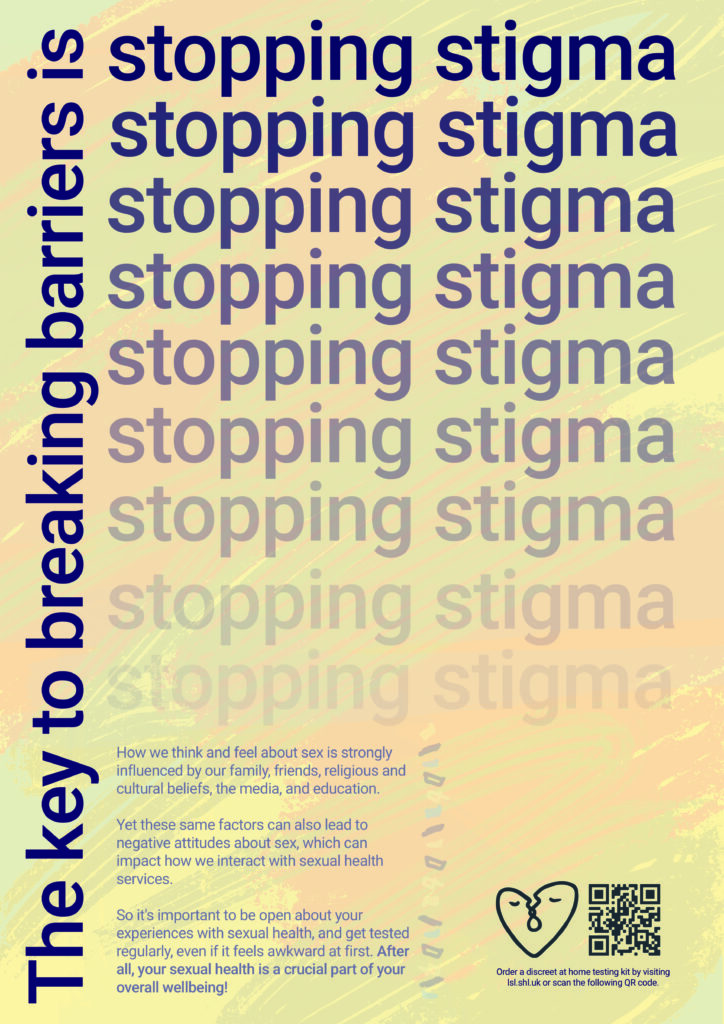31 Aug It’s time to breaking barriers this Sexual Health Week

To mark this year’s Sexual Health Week theme of “Breaking Barriers”, we want to shed light on how to tackle stigma, lack of safe spaces and culturally responsive sexual health care, to make sure everyone has the information and resources they need to stay safe and healthy, especially those who are overlooked in healthcare.
When it comes to sexual and reproductive health, Lambeth, Southwark and Lewisham face some of the biggest challenges within the country, with high rates of STIs and HIV transmission. In particular, Black communities living within these boroughs are some of the worst impacted, with higher rates of late HIV diagnoses particularly among Black African communities.
However, many Black residents feel as if sexual and reproductive healthcare is inaccessible due to the long history of medical racism and structural inequality within the UK, with over a quarter of respondents to our 2020 survey stating that their housing situation impacted their ability to access services.. In order to tackle sexual health inequalities, it’s important that we address the systemic barriers preventing Black residents in Lambeth, Southwark and Lewisham from accessing sexual health service, whether this be culturally responsive education and services, stigma, unsafe spaces and discrimination.
Everyone has the right to live healthy and pleasurable lives. We all have the right to ask the questions we need to ask without fear of judgement, the right to embrace our unique sexual health stories, and redefine what’s normal so that you can find the resources you need to feel more confident, informed and comfortable.
Stigma and education
Social stigmas affect everyone’s sexual health, and act as a barrier to accessing healthcare.
How we think and feel about sex (our sexual attitude) is strongly influenced by social factors, such as family, friends, religious and cultural beliefs, the media, and education. Unfortunately, these same social factors can also lead to negative attitudes about sex, which can impact accessing sexual health, making it difficult to get accurate information. So it’s important to be open about sexual health, even if it feels awkward at first. After all, your sexual health is a crucial part of your overall wellbeing!
Safe Spaces
Historically, communities that have been marginalised often have difficulty accessing safe spaces, where they feel seen and heard. This can act as a barrier to accessing healthcare, as they feel disconnected and judged by those around them. We need to do better at creating inclusive environments for everyone, where people feel safe enough to engage with their sexual health. These spaces are crucial for open and honest conversations about sex, and they can help people feel more comfortable communicating their needs and wants.
What do safe sexual health spaces look like?
- Sexual health spaces should be secure, welcoming and inclusive. They’re places where you can get information and support, without judgement.
- Creating safe sexual health spaces starts with creating a space that is physically safe. This means having a space that is free from violence, and discrimination.
- It is also important to create a space that is emotionally safe. This means creating a space where people feel comfortable discussing sensitive topics, like sexual health.
- Finally, it is important to create a space that is sexually safe. This means creating a space where people can practice safer sex without fear of judgement or stigma.
Cultural Sensitivity
At its core, culturally sensitive sexual healthcare and education is about respect. It’s about understanding and valuing the unique experiences of each individual. It’s about working together to ensure that everyone has the information and resources they need to make informed decisions about their sexual health. All it takes is centring empathy, not overlooking cultural differences and a willingness to listen. Learning how to create culturally sensitive sexual healthcare and education can help break down barriers and improve the quality of life for everyone involved.
Events
For Sexual Health Week 2022, we’re hosting the following events across Lambeth, Southwark and Lewisham:
– 12th September: Albrighton Community Centre – 1PM – 3PM
– 13th September: Evelyn Community Centre – 1PM – 4PM
– 14th September: Glass Mills Leisure Centre – 2PM – 5PM



Sorry, the comment form is closed at this time.